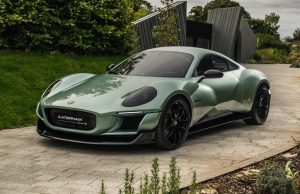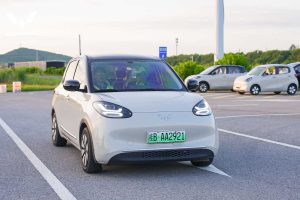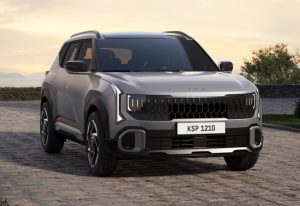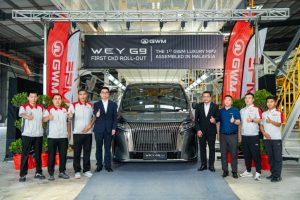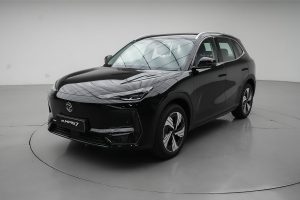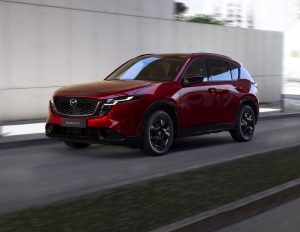The fifth-generation Toyota Prius hybrid and three Toyota Hilux green energy prototypes, namely a diesel hybrid 48V, an all-electric (BEV) and a hydrogen fuel cell electric (FCEV) unit were among the highlights at the recent 2023 Thailand 10-hour Endurance Race.
At a short track located at the Chang International Circuit in Buriram, Thailand, press writers were given brief test drives of the 2023 Prius and three Hilux prototypes.
This consisted of a 0 to 100kph off-the-line sprint, followed by a short drive on a rough and uneven road patch at 40kph to check out the ride comfort quality, before finishing with a brief slalom through a cone-filled course at 50kph.
The first prototype for us was the diesel hybrid 48V Hilux, fitted with an 8-speed automatic gearbox and electric power steering, where we experienced smooth and linear acceleration in the 0 to 100kph off-the-line sprint.
As for the BEV and FCEV Hilux prototypes, we found quick, near-silent and effortless pick-up, as we stepped hard on the accelerator pedal.

All three prototypes handled competently during the brief slalom, while steering feel was quite light and numb, with little feedback.
We were told that the Hilux BEV, FCEV and diesel hybrid 48V prototypes are rated for travel ranges of 300km, 600km and 1,200km respectively.
Towing capacities are 1,500kg (Hilux FCEV) and 3,500kg (Hilux diesel hybrid 48V), while this was not revealed for the Hilux BEV.
According to Toyota, the diesel hybrid 48V is aimed at individual users who desire a powerful pick-up, while the Hilux BEV is for short-range logistics or mining usage, and the Hilux FCEV is for long-range logistics.

2023 fifth-generation Toyota Prius at Chang International Circuit.
Our favourite machine was the stylish 2023 2.0-litre Prius hybrid, where we found a premium-looking interior.
Noise insulation is more than decent as under hard acceleration during a short off-the-line sprint, the engine roar was quite muted.
The steering was well weighted, and had a solid feel to it, and we liked how the new Prius handled during the slalom exercise.
The Prius and Hilux prototypes are part of Toyota’s "multi-pathway" strategy, where low and zero emission mobility solutions are designed to meet specific regional needs, or are relevant to customers' local infrastructure while remaining accessible so that no one is left behind.

From left: Toyota Hilux FCEV, BEV and diesel hybrid prototypes
The Hilux hybrid 48V is due to be introduced in Europe in mid-2024, with a 2.8-litre diesel engine and a 48V lithium battery.
The engine drives a compact motor generator using a belt system, which in turn charges the 48V lithium battery.
This 48V battery also supplies the vehicle’s 12V system through a DC/DC converter.
Like Toyota’s full hybrid electric systems, the new battery is charged during deceleration, efficiently regenerating braking energy.
Once charged, the battery sends up to 16hp (12kW) of power and 65Nm of torque through the motor generator to the engine to enhance acceleration, power and efficiency.
The Hilux hybrid 48V’s DOHC, 16 valve, 2.8-litre diesel engine produces 204hp/150 kW at 3,400rpm and 500Nm of torque between 1,600 and 2,800rpm.

Toyota Hilux diesel hybrid 48V prototype

Toyota Hilux diesel hybrid 48V prototype

Toyota Hilux diesel hybrid 48V prototype
First revealed at Toyota Motor Thailand’s 60th anniversary celebrations in December 2022, the concept Hilux BEV features a double wishbone front suspension and a sturdy rear suspension leaf spring.
It was also among the highlights at the Bangkok International Motor Show 2023 in March.
Toyota says the concept has an electric drive system that runs on a lithium-ion battery.
There are plans to introduce the Hilux Revo BEV as an eco-friendly vehicle in the "Decarbonised Sustainable City" project, which aims to promote alternative energy vehicle technology and clean energy systems for transportation, the economy, and sustainable environmental development in Pattaya City.
In October 2023, Toyota Australia said the Hilux BEV prototype had undergone demonstration drives by its customers and other valued clients, before returning to Thailand where a demonstration fleet of Hilux-based electric share taxis would be launched.

Toyota Hilux BEV prototype

Toyota Hilux BEV prototype

Toyota Hilux BEV prototype

Toyota Hilux BEV prototype

Toyota Hilux BEV prototype

Toyota Hilux BEV prototype

Toyota Hilux BEV prototype

Toyota Hilux BEV prototype

Toyota Hilux BEV prototype

Toyota Hilux BEV prototype

Toyota Hilux BEV prototype
The prototype Hilux FCEV was revealed in September 2023 at Toyota Manufacturing UK’s plant in Derby, England, and technology from the Toyota Mirai FCEV sedan.
Hydrogen is stored in three high-pressure fuel tanks.
When driven, the fuel cell produces no tailpipe emissions other than pure water.
The battery, which stores electricity produced on-board by the fuel cell, is in the rear load deck, thus avoiding loss of cabin space.

Toyota Hilux FCEV prototype

Toyota Hilux FCEV prototype

Toyota Hilux FCEV prototype

Toyota Hilux FCEV prototype

Toyota Hilux FCEV prototype

Toyota Hilux FCEV prototype

Toyota Hilux FCEV prototype

Toyota Hilux FCEV prototype

Toyota Hilux FCEV prototype

Toyota Hilux FCEV prototype
The new Prius series parallel hybrid was launched in Japan in January 2023, in 1.8 and 2.0-litre models priced from 2.75 to 3.92 million yen (RM89,763 to RM127,954).
Using the Worldwide Harmonised Light Vehicles Test Cycle or WLTC mode, the 1.8-litre Prius is rated for fuel efficiency of 32.6km per litre (front-wheel drive with 17-inch tyres) while the 2.0-litre Prius is rated for 28.6km per litre (front-wheel drive with 19-inch tyres).
The new Prius is based on a second-generation TNGA platform, and features sleek and sporty styling as well as improved driving performance.
Driveline is either front-wheel drive or E-Four (all-wheel drive system for hybrid models).
In March 2023, a 2.0-litre plug-in hybrid (PHEV) variant was launched at 4.6 million yen (RM150,150) and is rated with fuel efficiency of 26km per litre (with 19-inch tyres) and 30.1km per litre (with 17-inch tyres), on the WLTC mode.
The front-wheel driven Prius PHEV, with 223PS of power, offers all-electric driving distance of 87km with 19-inch tyres, and 105km with 17-inch tyres.

2023 fifth-generation Toyota Prius

2023 fifth-generation Toyota Prius

2023 fifth-generation Toyota Prius

2023 fifth-generation Toyota Prius

2023 fifth-generation Toyota Prius

2023 fifth-generation Toyota Prius

Toyota Motor Corp deputy chief engineer Satoki Oya with 2023 fifth-generation Toyota Prius


